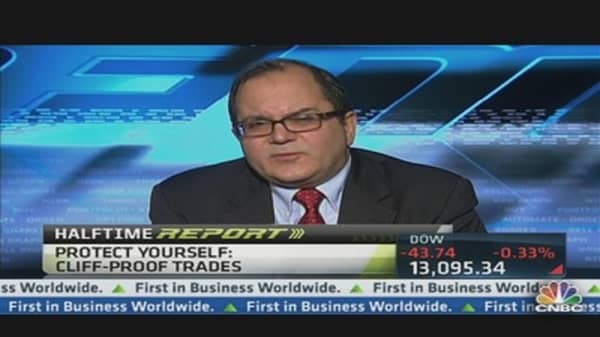Investors are showing enthusiasm levels near the highs for the year - just in time for the economy to go marching off the "fiscal cliff."
The prospect of higher taxes and tighter government spending seems not to be bothering many market participants, who in December shifted allocation from bonds into stocks.
Whether the bulls will regret their position is a matter for 2013 to decide, but the evidence for the moment shows that the luster finally may be coming off fixed income. (Read More: Vanguard CIO: Beware Bond Bubble)
"What we've done for four years is climb the wall of worry," said Jim Paulsen, chief market strategist at Wells Capital Management and believer that investors fund flows "will reverse" in the time ahead.
"Next year is going to be more of a confidence-driven run, not just climbing despite concerns but really climbing because of rising confidence," he added.
December indeed has shown investors preparing to change asset allocations.
Flows into stock-based mutual and exchange-traded funds have totaled about $8 billion so far, while bonds have taken in less than $1 billion, according to Lipper.
That reverses course from a year in which bonds have taken in about $250 billion and equities have lost more than $130 billion.
Paulsen believes that the change will continue based on two factors: Bond returns will turn negative, and investors will grow more confidence in stocks after the Standard & Poor's 500 passes its historic high of 1,565.
"That will end the lost-decade conversation," Paulsen said. "At the same time, bond players are not just getting a low return but taking a hit. That could be a serious change in that fund flow."
Enthusiasm, in fact, is everywhere on Wall Street despite the hand-wringing over the "fiscal cliff" stalemate that economists think could plunge the U.S. into recession. (Read More: Market's Solid Year Could Soon Fall Off a 'Cliff')
Bullish sentiment on the American Association of Independent Investors survey last week hit a 10-month high of 46.4 percent.





